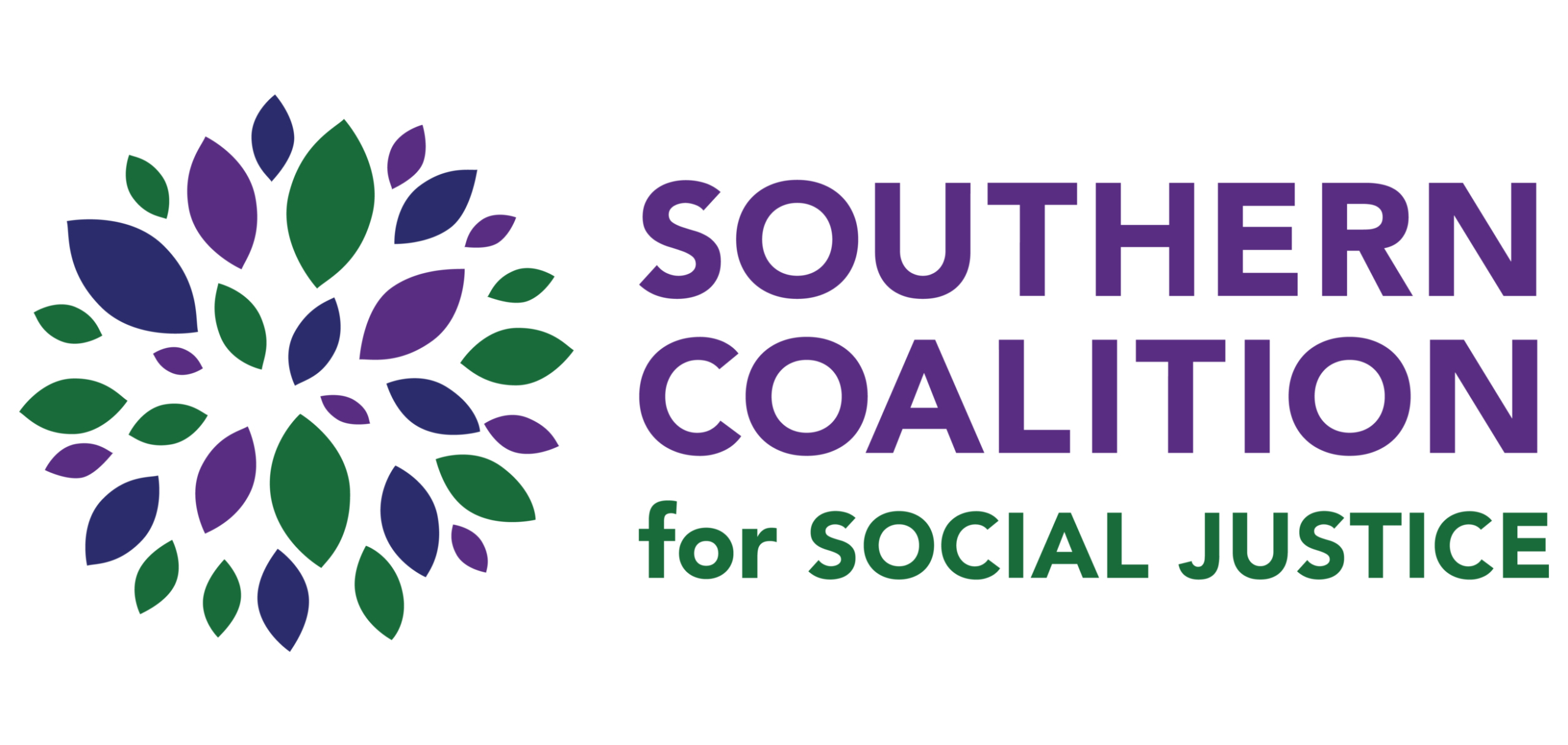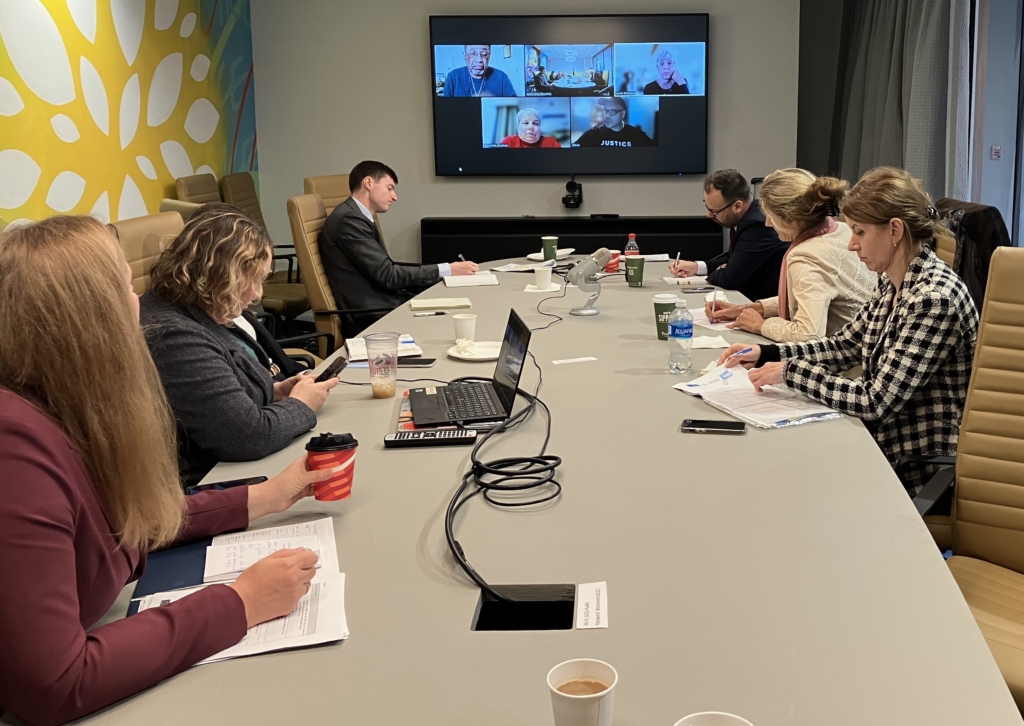About Southern Coalition for Social Justice
Southern Coalition for Social Justice is a 501(c)(3) nonprofit organization founded in August 2007 in Durham, North Carolina by a multidisciplinary group, predominantly people of color, who believed that families and communities engaged in social justice struggles need a team of lawyers, social scientists, community organizers, and media specialists to support them in their efforts to dismantle structural racism and oppression.
Some of our current efforts include these interrelated issues:
- Protecting the voting rights of people of color and strengthening meaningful opportunities for effective civic participation for all.
- Ensuring police accountability through data and policy advocacy.
- Challenging racial discrimination at all stages of the criminal justice system and its impact on racial and ethnic minority communities.
- Promoting effective school discipline policies and interrupting the school-to-prison pipeline that devastates families and communities of color.
Our Mission
Southern Coalition for Social Justice partners with communities of color and economically disadvantaged communities in the South to defend and advance their political, social, and economic rights through the combination of legal advocacy, research, and communications.
Our Vision
Communities will succeed in realizing their own goals, and people will know from experience that they can make a difference on issues that matter to them.
Our Core Values
We are committed to:
- Representing economically disadvantaged communities of color who otherwise would not have legal representation.
- Having a concrete impact that moves us toward eliminating structural inequality.

Our Goals
1. Provide the highest quality legal advice and representation to poor communities and communities of color engaged in social change efforts.
2. Bring the best social science research (whether litigation or policy-related), communications strategies, and community organizing skills to serve community priorities.
3. Have substantive priorities that are community-determined.
4. Build coalitions across community lawyering organizations in the South and between national organizations and local community groups.
Our Focus Areas
Justice System Reform

Voting Rights


